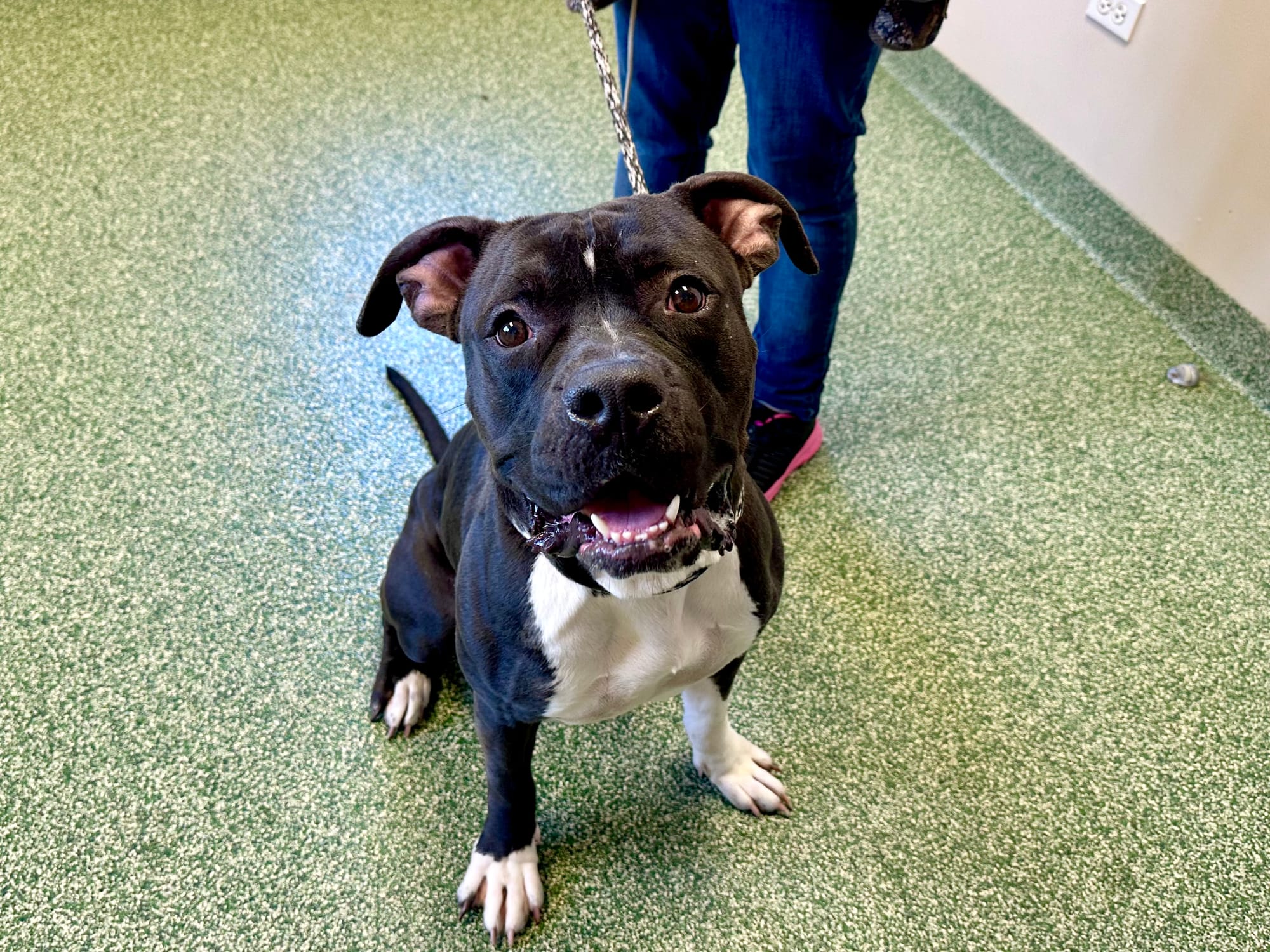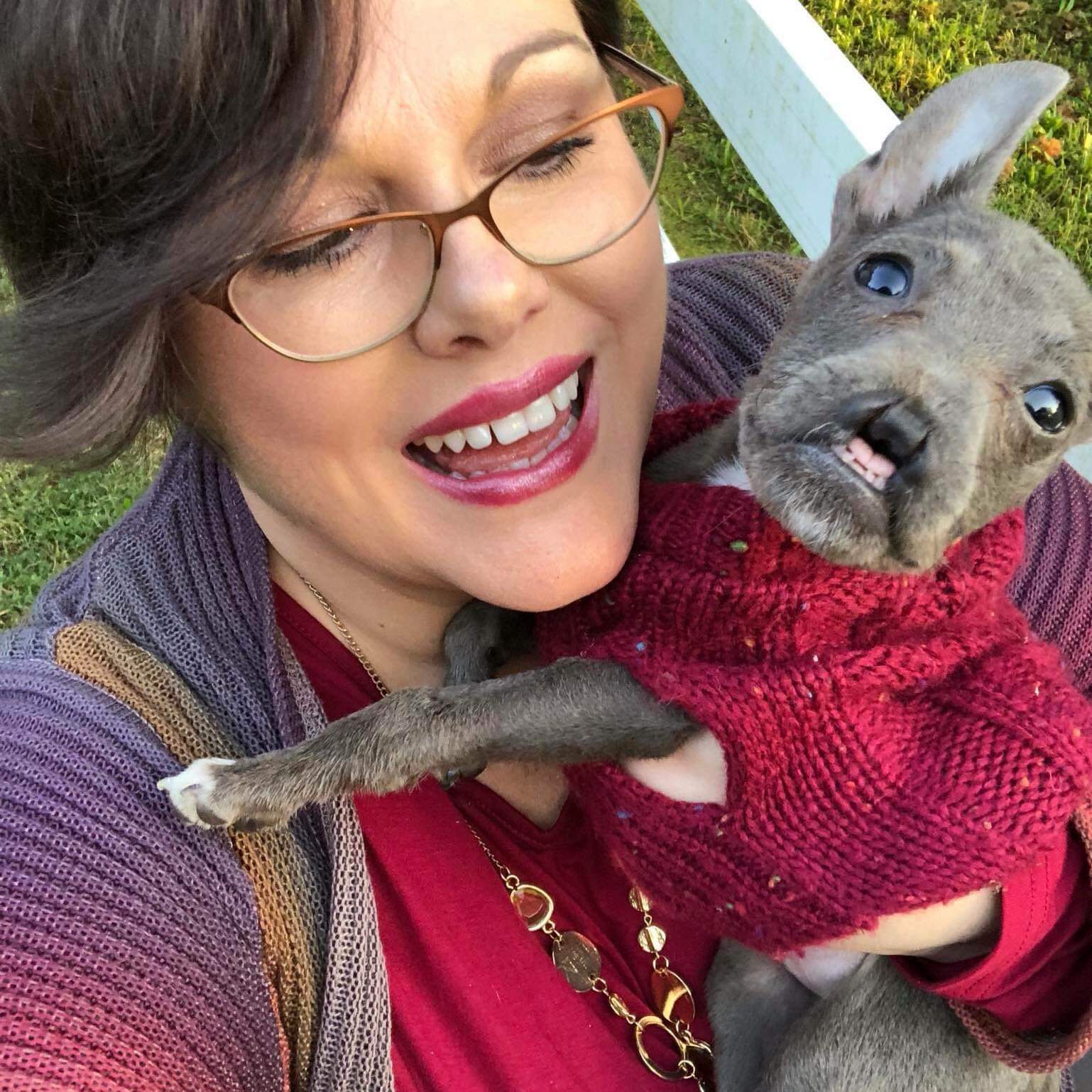Welcome to the ultimate destination for celebrating the unsung heroes of the dog rescue world. At Rescue Spotlight, we're dedicated to highlighting the remarkable journeys of rescue organizations and the incredible individuals behind them.
Whether you seek heartwarming tales of second chances, inspiring stories of rescue missions, or practical insights into the world of dog adoption, you'll find it all here.
Today, we're privileged to interview Kari Yahnke, one of the devoted people behind Wisconsin Bound Dog Rescue. You can find a direct link to their Instagram here.
Here is their story:
What inspired you to start or become involved with this rescue organization?
Yahnke: I was a director with another rescue and when it closed its doors, I knew there was still a huge need to save dogs from bad situations.
Can you tell us about a particularly memorable rescue mission or adoption story that stands out to you?
Yahnke: We saved a 10-month-old pup from being put down due to a bite. Sadly, the family was letting their child get into the dog's face when eating and he nipped the child. They took it to the vet to have it put to sleep. The vet was getting ready to put him down and he handed them his paw to shake. They saw how sweet he was and held on to him for the 10 bite hold. They reached out to us right away and we took him in and worked through his fear of small kids and he was adopted out to a family who just adores him.
What are some of the biggest challenges you face as a rescue organization, and how do you overcome them?
Yahnke: People not working through behavior issues with their pet. If it doesn't fit into what they want, they surrender without looking into fixing the issue. We take them back and work with the pup and make sure the next home has full disclosure and what this pup needs are moving forward.
How do you select the dogs that your organization takes in, and what criteria do you use for adoption?
Yahnke: When pulling, we make sure the rescue from down south is honest on behavior. We pull only what I can take in due to some fosters can only take in certain dogs. Like maybe puppies or only small or senior dogs. All our dogs stay in our homes with our rescue and need to get along with our current pets in our homes.
In what ways do you work to rehabilitate and socialize dogs before they are adopted?
Yahnke: We use a trainer in our area who helps guide our fosters into providing for the dogs' needs. We also do lots of outings for adoption events and have other foster watches over other pups so that we can get a handle on their needs away from the foster. We sometimes move a foster dog to another home that can work on a certain need. Like maybe leash work or potty training.
What role do volunteers play in your organization, and how can people get involved?
Yahnke: WBDR has an amazing team. We all bring something to the table. We have a medical person who helps with our dog needs like shots and simple medical. We have some foster who work with our shy dogs and get them out more on walks and into social settings. Another foster step up to help bottle feeding or taking in a mama dog who is about to have given birth to her pups. All our foster play a huge role in working with and placing dogs into their forever homes. We have a team who just manages our post and internet activities for bios and fundraising.
Can you share some success stories of dogs who were once in your care and have now found loving forever homes?
Yahnke: We just rescued 15 dogs from a backyard breeder who did no medical care on his dogs. These pups never left their 24-inch kennels and were used only for profit. We did save them and provided these pups with all medical which was blood-work, spays, dental, and shots. Sadly we lost 3 of them due to neglect from this breeder. All these pups were adopted out into loving homes who just adore them. They will never have another litter or live in a kennel. Most of these dogs were from 2 to 9 years old. We did file charges against him.
How does your organization collaborate with other rescues, shelters, or animal welfare organizations?
Yahnke: We all work closely together. We all have the same mission to bring awareness to people and find homes for these sweet souls who have no voice.
What initiatives or programs does your rescue have in place to promote responsible pet ownership and prevent pet homelessness?
Yahnke: We do a lot of follow-up with our adopted dogs to make sure they are spayed and neutered after adoption. We also reach out to make sure if issues come up we can help guide them into the right resource to help them. We also make sure adopters understand the needs of their dogs. Like breed and activity levels. We make sure that if a dog has a special need then we make sure we pay for training for that pup and give them time to foster to adopt when a pup has special quirks before an adoption.
Looking ahead, what are your organization's goals and aspirations for the future?
Yahnke: Making sure we don't place a dog unless we all feel it's a great fit. I would rather say no now than get a dog back with issues. We also want to make sure to promote spay and neuters. We try to educate people and make sure they know as much info on the dog they are interested in. Lots of puppy mills and backyard breeders overbreed their dogs for profit. Lots of dogs are used to breed and when the breeder is done throw them away. We get lots of these pups. Sadly, these dogs take a lot of time to work on being normal dogs. This part of the rescue is the saddest. Lots of these breeders' dogs lose their life.

